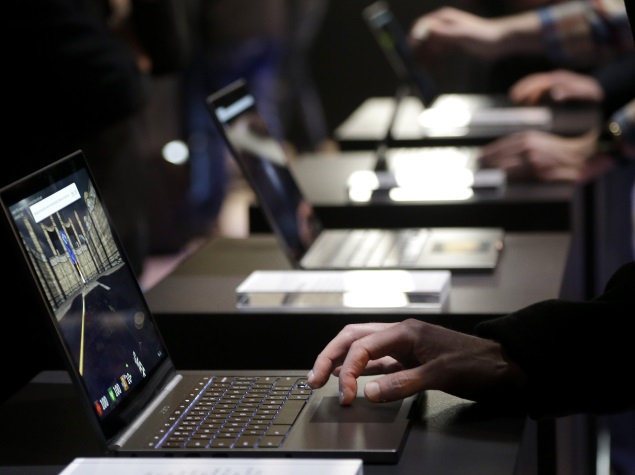- Home
- Internet
- Internet News
- India Calls for Action at UN to Stop Terrorists Exploiting the Internet
India Calls for Action at UN to Stop Terrorists Exploiting the Internet

India's UN Ambassador Asoke Kumar Mukerji, speaking to the UN Security Council Wednesday during a marathon session on international cooperation to combat terrorism, drew attention "to the increasingly sophisticated use of technology and communications to commit ever more barbaric acts of terror".
He recalled the Mumbai attack and said, "This was the first time that we confronted the use of voice over Internet protocol (VoIP) to direct terrorist acts. We believe that if we are serious about countering this challenge in an effective manner, we must agree on necessary adjustments to be made in the way the global Internet infrastructure is currently managed in order to counter the exploitation of the Internet by terrorists."
Mukerji also urged the Council to "add its collective voice" for the early conclusion of the Comprehensive Convention on International Terrorism that would legally compel countries to either prosecute or extradite terrorists.
The drafting of the convention is now languishing in the UN General Assembly's legal committee which is deadlocked over defining terrorism.
The Council's discussions took place against the backdrop of revelations that more than 15,000 foreign fighters from over 80 countries, including many in Europe, had joined terrorist organisations in Syria, Iraq and neighbouring countries.
Delegates from more than 60 countries participated in the session presided over by Australian Foreign Minister Julie Bishop.
Canadian Deputy Permanent Representative Michael Douglas Grant referred to the 2008 Mumbai attack in India six years ago and said it demonstrated how violent extremism could become even more dangerous when backed by the capacities of a sovereign state.
Pakistan's UN Ambassador Masood Khan asserted that his country's "experience is that there should be zero tolerance for terrorists and violent extremists".
For that reason, he said Pakistan has been carrying out a "counter-terrorist operation to take out terrorists, to dismantle their networks, to staunch their flow inside and outside borders, and to destroy their support system."
In a statement issued on behalf of the Council, Bishop referred to the use of technology by terrorists and said countries should oppose violent extremist propaganda on the Internet and social media by developing effective counter-narratives and work with civil society organisations and the private sector to accomplish this.
Get your daily dose of tech news, reviews, and insights, in under 80 characters on Gadgets 360 Turbo. Connect with fellow tech lovers on our Forum. Follow us on X, Facebook, WhatsApp, Threads and Google News for instant updates. Catch all the action on our YouTube channel.
Related Stories
- Samsung Galaxy Unpacked 2026
- iPhone 17 Pro Max
- ChatGPT
- iOS 26
- Laptop Under 50000
- Smartwatch Under 10000
- Apple Vision Pro
- Oneplus 12
- OnePlus Nord CE 3 Lite 5G
- iPhone 13
- Xiaomi 14 Pro
- Oppo Find N3
- Tecno Spark Go (2023)
- Realme V30
- Best Phones Under 25000
- Samsung Galaxy S24 Series
- Cryptocurrency
- iQoo 12
- Samsung Galaxy S24 Ultra
- Giottus
- Samsung Galaxy Z Flip 5
- Apple 'Scary Fast'
- Housefull 5
- GoPro Hero 12 Black Review
- Invincible Season 2
- JioGlass
- HD Ready TV
- Latest Mobile Phones
- Compare Phones
- Tecno Pova Curve 2 5G
- Lava Yuva Star 3
- Honor X6d
- OPPO K14x 5G
- Samsung Galaxy F70e 5G
- iQOO 15 Ultra
- OPPO A6v 5G
- OPPO A6i+ 5G
- Asus Vivobook 16 (M1605NAQ)
- Asus Vivobook 15 (2026)
- Brave Ark 2-in-1
- Black Shark Gaming Tablet
- boAt Chrome Iris
- HMD Watch P1
- Haier H5E Series
- Acerpure Nitro Z Series 100-inch QLED TV
- Asus ROG Ally
- Nintendo Switch Lite
- Haier 1.6 Ton 5 Star Inverter Split AC (HSU19G-MZAID5BN-INV)
- Haier 1.6 Ton 5 Star Inverter Split AC (HSU19G-MZAIM5BN-INV)







![[Partner Content] OPPO Reno15 Series: AI Portrait Camera, Popout and First Compact Reno](https://www.gadgets360.com/static/mobile/images/spacer.png)









